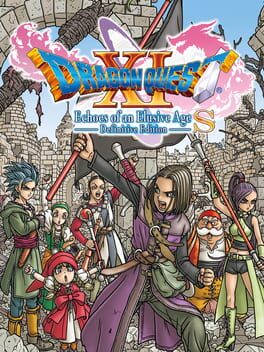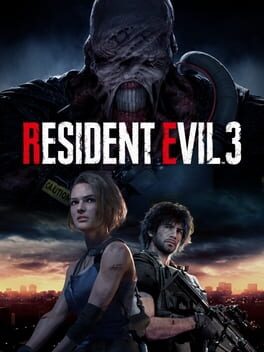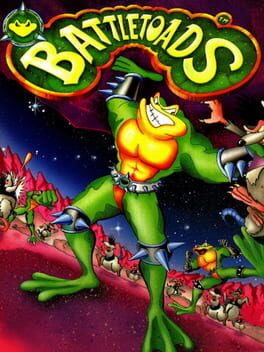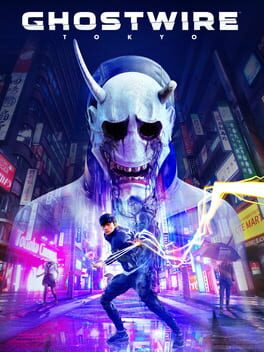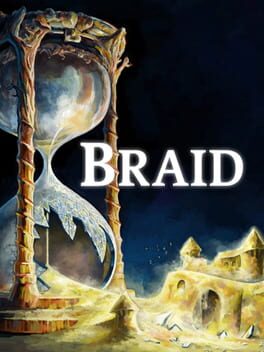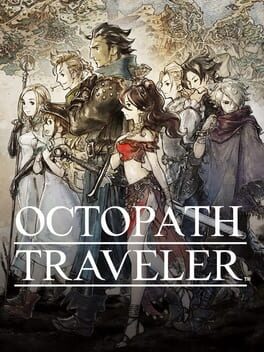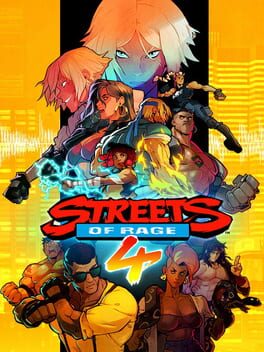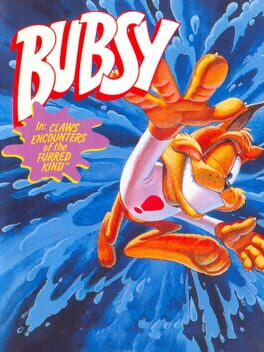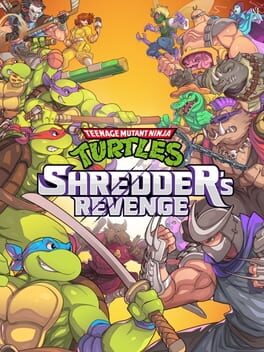Dmg_Inc
Dragon Quest XI was my first foray into the Dragon Quest series. This was a JRPG series I had heard great things about for decades, but I never felt the itch to play any of the games. Recently, however, after rediscovering my adoration for JRPGs that had been absent for many years, I decided to give this one a go, being that I had heard sterling praise for the game since its initial release.
Immediately after setting foot into the world of Erdrea, I fell in love with the vibrant anime art-style and the awesome character models created by the legendary Akira Toriyama (RIP). As I continued to encounter more party members, I also fell in love with the characters and their personalities. However, when it came to how the game felt to play, I found the gameplay to be somewhat lackluster. There were a lot of neat ideas, such as the monster mounting system, but I found the gameplay often ended up feeling too simple and a bit shallow, including the combat, which I felt was incredibly forgiving and easy, to the point where I never really felt that I had to strategize with any of my abilities. Almost every single encounter, outside of maybe a couple of boss fights, all just came down to me using my pure-offensive abilities and taking such little damage that I was rarely ever concerned about the health of any of my characters. Perhaps I was over-leveled most of the game, but I never went out of my way to do any extended grinding that I should have been. I do realize there are different difficulty settings you can apply at the start of the game to provide more of a challenge, but unless you know what sort of impact the different settings are going have (which I did not as a new player), and you opt for the default experience as I did, you will rarely find yourself even remotely challenged, unless perhaps you are brand new to turn-based RPGs. Furthermore, I could not find any way to change the difficulty in the middle of a playthrough, so I sort of felt stuck with just continuing on with the default game-mode.
Another minor complaint I have about the game is regarding the OST: While I absolutely loved the music (both the symphonic and synthesized versions), I did find that it got rather repetitive. The same handful of themes seem to just repeat themselves throughout the entirety of the game, and I did find that a bit disappointing, especially when comparing it to the likes of Final Fantasy, which has a plethora of different themes for its characters and areas. But perhaps I was just spoiled by Nobuo Uematsu over the years.
In conclusion, I loved the cast characters enough to play from start to finish -- and admittedly, the ending credits made me a bit emotional, reflecting on my 70-hour journey with them. But had the visuals and character-writing not been so damn charming, Dragon Quest XI would have just felt like a very mediocre game, and I'm not too sure I would have been motivated to finish it, especially considering the amount of time it asks you to invest.
Immediately after setting foot into the world of Erdrea, I fell in love with the vibrant anime art-style and the awesome character models created by the legendary Akira Toriyama (RIP). As I continued to encounter more party members, I also fell in love with the characters and their personalities. However, when it came to how the game felt to play, I found the gameplay to be somewhat lackluster. There were a lot of neat ideas, such as the monster mounting system, but I found the gameplay often ended up feeling too simple and a bit shallow, including the combat, which I felt was incredibly forgiving and easy, to the point where I never really felt that I had to strategize with any of my abilities. Almost every single encounter, outside of maybe a couple of boss fights, all just came down to me using my pure-offensive abilities and taking such little damage that I was rarely ever concerned about the health of any of my characters. Perhaps I was over-leveled most of the game, but I never went out of my way to do any extended grinding that I should have been. I do realize there are different difficulty settings you can apply at the start of the game to provide more of a challenge, but unless you know what sort of impact the different settings are going have (which I did not as a new player), and you opt for the default experience as I did, you will rarely find yourself even remotely challenged, unless perhaps you are brand new to turn-based RPGs. Furthermore, I could not find any way to change the difficulty in the middle of a playthrough, so I sort of felt stuck with just continuing on with the default game-mode.
Another minor complaint I have about the game is regarding the OST: While I absolutely loved the music (both the symphonic and synthesized versions), I did find that it got rather repetitive. The same handful of themes seem to just repeat themselves throughout the entirety of the game, and I did find that a bit disappointing, especially when comparing it to the likes of Final Fantasy, which has a plethora of different themes for its characters and areas. But perhaps I was just spoiled by Nobuo Uematsu over the years.
In conclusion, I loved the cast characters enough to play from start to finish -- and admittedly, the ending credits made me a bit emotional, reflecting on my 70-hour journey with them. But had the visuals and character-writing not been so damn charming, Dragon Quest XI would have just felt like a very mediocre game, and I'm not too sure I would have been motivated to finish it, especially considering the amount of time it asks you to invest.
Dark Souls 2 is not quite the masterclass in game design that the first game was, but it still feels close enough to its predecessor to be an enjoyable title. There are little things throughout the game that make it feel not nearly as tight as the first Dark Souls, but I feel a lot of the hatred of the game that is found among many in the DS community to be a bit unwarranted. Yes, the adaptability stat is ambiguous and sucks because of the impact it has on gameplay. Yes, the level design isn't the marvel that it was in the first game. Yes, the player-character movement isn't as tight (though I barely noticed this until it was pointed out to me). And yes, it often feels like they tried to fit too many uninspired boss fights into the game. However, none of these flaws completely ruined the experience for me, and it retained enough of the enjoyable aspects of the Dark Souls formula for me to enjoy myself start to finish.
2020
Resident Evil 3 Remake in many ways is just as solid as Resident Evil 2 Remake - in its gameplay, visuals, and atmosphere. The game is just so incredibly short that it felt like it could have been RE:2 Remake DLC. Moreover, Mr. X in RE:2 felt like more of a Nemesis than Nemesis did in this game, which is a shame considering they clearly had the means to implement something similar or even expand upon the Mr. X system.
Overall, RE:3 Remake is still a solid game that I enjoyed for the short thrill ride that it was. But it could have been so much more...
Overall, RE:3 Remake is still a solid game that I enjoyed for the short thrill ride that it was. But it could have been so much more...
2019
An absolute masterpiece and the staple of what a remake should be. RE:2 Remake is nothing short of phenomenal in the way it plays, in the stunning visuals, and in the intense, terrifying atmosphere that it manifests. It honors the greatness of original game while improving upon it in almost every single aspect.
1991
2022
Ghostwire Tokyo is a visual delight with a cool concept and a somewhat different twist on the open-world action genre.
The gameplay loop is pretty fun, though I felt that it did get a bit repetitive after a dozen or so hours of playing. The campaign is fairly short, and it's loaded with your typical run-of-the-mill open-world side-adventures, ala Assassin's Creed, Spider-Man, Arkham City etc. However, I found getting around Tokyo in Ghostwire to not be nearly as enjoyable as in those other games, making the side-adventures a tad less desirable to complete.
Visuals are great, especially the presentation of Tokyo itself. Moreover, the monster (visitor) designs are absolutely top notch. There are some truly terrifying creatures in this game.
Their horrific portrayal, along with the creepy abandoned city creates an atmosphere that is quite chilling, which was a tad more on the horror side of the genre than I had expected going in.
Regarding the story: I found it very difficult to follow, and thus with the exception of what was happening on the surface level, I had a really tough time understanding what the heck was going on, which made it challenging for me to connect to the characters -- this simply could just boil down to me being too smooth-brained to properly connect the dots.
Overall, Ghostwire Tokyo is a pretty solid open-world game that I would definitely recommend trying, especially if you can find it on the cheap. I did enjoy most of my time playing.
However, despite the campaign being fairly short with some oddly rushed pacing toward the last couple of chapters, I was still ready for the game to be over with when the ending arrived.
The gameplay loop is pretty fun, though I felt that it did get a bit repetitive after a dozen or so hours of playing. The campaign is fairly short, and it's loaded with your typical run-of-the-mill open-world side-adventures, ala Assassin's Creed, Spider-Man, Arkham City etc. However, I found getting around Tokyo in Ghostwire to not be nearly as enjoyable as in those other games, making the side-adventures a tad less desirable to complete.
Visuals are great, especially the presentation of Tokyo itself. Moreover, the monster (visitor) designs are absolutely top notch. There are some truly terrifying creatures in this game.
Their horrific portrayal, along with the creepy abandoned city creates an atmosphere that is quite chilling, which was a tad more on the horror side of the genre than I had expected going in.
Regarding the story: I found it very difficult to follow, and thus with the exception of what was happening on the surface level, I had a really tough time understanding what the heck was going on, which made it challenging for me to connect to the characters -- this simply could just boil down to me being too smooth-brained to properly connect the dots.
Overall, Ghostwire Tokyo is a pretty solid open-world game that I would definitely recommend trying, especially if you can find it on the cheap. I did enjoy most of my time playing.
However, despite the campaign being fairly short with some oddly rushed pacing toward the last couple of chapters, I was still ready for the game to be over with when the ending arrived.
2008
I went back to play Braid recently after having some fond memories of playing it 15-years ago (as hard as I find that to believe). I still loved the pastel art-style, and the soundtrack is amazing. I got a super cozy vibe when I was playing. However, in terms of the actual gameplay, the puzzle-solving was a lot more frustrating than I remember. I did still enjoy the time reversal system and the way you use it to solve puzzles.
When it's clicking, it can be a very rewarding experience. However, there were many puzzle pieces that I simply just gave up on out of sheer frustration, which ultimately ended up leading to me walking away from the game. I couldn't figure out if the issue was that I was just incompetent (very likely) or if I was supposed to come back with an ability-upgrade to finish them later, and I couldn't recall from my previous venture in 2009. I also feel like the game didn't do a good job of making that clear either.
Ultimately, I feel like with the strides that indie games have made over the last decade, the gameplay in Braid just didn't age as well as I had hoped. Still, from an artistic perspective, it still shines.
When it's clicking, it can be a very rewarding experience. However, there were many puzzle pieces that I simply just gave up on out of sheer frustration, which ultimately ended up leading to me walking away from the game. I couldn't figure out if the issue was that I was just incompetent (very likely) or if I was supposed to come back with an ability-upgrade to finish them later, and I couldn't recall from my previous venture in 2009. I also feel like the game didn't do a good job of making that clear either.
Ultimately, I feel like with the strides that indie games have made over the last decade, the gameplay in Braid just didn't age as well as I had hoped. Still, from an artistic perspective, it still shines.
1998
The first Metal Gear Solid is such a revolutionary game that it is hard not to severely appreciate it despite certain aspects of the game not having aged particularly well, especially in the way the game controls. There wasn't a single boss encounter that didn't frustrate me to some degree because of how awkward it feels to do anything with accuracy or precision in this game. The stealth mechanics also show their age with how limited they are, especially when compared to MGS2:SOL, or even the likes of Splinter Cell, both of which would release just a few years later. Overall, despite those criticisms, I still found the gameplay enjoyable.
In terms of the characters and story, both are absurdly campy at times. However, it's important to remember that 1998 was a point in time where complex storytelling -- especially cinematic-esque storytelling -- was a very new concept in video games. Both Metal Gear Solid and Final Fantasy VII truly paved the way in proving that video games could be taken seriously as a legitimate medium for artistic storytelling; and for that, some of the corniness simply has to be forgiven. Besides, there is a lot of charm to the campiness anyway. Even though I found myself cracking up at some of the dialogue, I still enjoyed the hell out of it, and I fell in love all over again with the cast of wacky characters. Moreover, Snake still comes off as one of the coolest damn protagonists in any video game, just as he did a quarter of a century ago.
While I wouldn't call Metal Gear Solid a timeless masterpiece due to the aspects of the gameplay not having aged well, it's still such a profoundly trailblazing title that it will always be secured as an all-time classic.
In terms of the characters and story, both are absurdly campy at times. However, it's important to remember that 1998 was a point in time where complex storytelling -- especially cinematic-esque storytelling -- was a very new concept in video games. Both Metal Gear Solid and Final Fantasy VII truly paved the way in proving that video games could be taken seriously as a legitimate medium for artistic storytelling; and for that, some of the corniness simply has to be forgiven. Besides, there is a lot of charm to the campiness anyway. Even though I found myself cracking up at some of the dialogue, I still enjoyed the hell out of it, and I fell in love all over again with the cast of wacky characters. Moreover, Snake still comes off as one of the coolest damn protagonists in any video game, just as he did a quarter of a century ago.
While I wouldn't call Metal Gear Solid a timeless masterpiece due to the aspects of the gameplay not having aged well, it's still such a profoundly trailblazing title that it will always be secured as an all-time classic.
2018
A simply incredible 2D JRPG, start to finish. Not only is the art-style absolutely gorgeous, but the musical score composed by Yasunori Nishiki is one of the best gaming soundtracks I've ever had the pleasure of listening to, rivaling even that of Nobuo Uematsu's Final Fantasy scores, which I didn't think was possible. The soundtrack is so good that I could have played through the game simply off the back of the music alone. Beyond that, turn-based RPGs are always welcome gameplay in my book, and I loved getting back into that style of RPG after not having played one in a long time. While the turn-based combat feels mostly familiar, the inclusion of the "Boost" system was a lot of fun, especially when you're able to combo multiple boosts for some devastating damage.
My only complaint about the game is that I only found 2 - 3 of the 8 separate storylines to be truly interesting, with Primrose's story being the best of the bunch in my opinion -- the rest varied from just OK, to rather banal. Still, there was nothing inherently wrong with any of the storylines, and it wasn't enough to keep me from absolutely adoring nearly every moment I spent with this game.
My only complaint about the game is that I only found 2 - 3 of the 8 separate storylines to be truly interesting, with Primrose's story being the best of the bunch in my opinion -- the rest varied from just OK, to rather banal. Still, there was nothing inherently wrong with any of the storylines, and it wasn't enough to keep me from absolutely adoring nearly every moment I spent with this game.
2020
Being a huge Streets of Rage fan in the 90s, I was super-excited to play the 4th entry into the series, and I was not disappointed in the slightest. The vibrant hand drawn anime art-style that they went with was a great choice. Everything looks absolutely stunning, from the character models to the environments -- I was enthralled by the visuals throughout my entire playthrough. Also, It was so incredible to see most of the classic SoR cast, along with all of the classic enemy-types get this visual upgrade, with many cool new enemy-types as well.
Another high expectation I had was for the music, and it did not disappoint. The bar was set high because of how amazing the music of Streets of Rage 2 was, but they really knocked this soundtrack out of the park as well. It was so awesome to hear that Yuzo Koshiro -- the original SoR composer -- came back to do a few tracks for the game. I would have loved to have heard a whole new soundtrack from him, but Olivier Deriviere -- who took over as the primary artist featured on this soundtrack -- did a wonderful job, and I still loved nearly every single track. I'm actually listening to the soundtrack as I'm typing this review, and I'm adoring the hell out of it! It really sounds like Deriviere paid a ton of homage and respect to Koshiro's style, which I can severely appreciate.
The game plays just like I remember Streets of Rage playing on the Genesis, and that is not a bad thing. I wouldn't say that the game did anything mechanically innovative to move the genre forward -- it really is just your classic 90s-era BEU with a few extra move sets -- but it feels timeless to play, and it's hard to not have a good time.
I guess my only complaint is that the game is a bit short. I'm not expecting some 40-hour banger from my BEU titles, but I was able to get through the entire game on normal mode in roughly 3-4 hours. At the end, I felt like I would have appreciated at least a few more stages. But still, I had a great time in those few hours, and these games are always fun to play back through on higher difficulties with different characters, or with friends, so there's plenty of reason to go back for more. If you're a Streets of Rage fan, you owe it to yourself to play this entry. As long as you're not looking for something revolutionary, I can't see how you could be disappointed.
Another high expectation I had was for the music, and it did not disappoint. The bar was set high because of how amazing the music of Streets of Rage 2 was, but they really knocked this soundtrack out of the park as well. It was so awesome to hear that Yuzo Koshiro -- the original SoR composer -- came back to do a few tracks for the game. I would have loved to have heard a whole new soundtrack from him, but Olivier Deriviere -- who took over as the primary artist featured on this soundtrack -- did a wonderful job, and I still loved nearly every single track. I'm actually listening to the soundtrack as I'm typing this review, and I'm adoring the hell out of it! It really sounds like Deriviere paid a ton of homage and respect to Koshiro's style, which I can severely appreciate.
The game plays just like I remember Streets of Rage playing on the Genesis, and that is not a bad thing. I wouldn't say that the game did anything mechanically innovative to move the genre forward -- it really is just your classic 90s-era BEU with a few extra move sets -- but it feels timeless to play, and it's hard to not have a good time.
I guess my only complaint is that the game is a bit short. I'm not expecting some 40-hour banger from my BEU titles, but I was able to get through the entire game on normal mode in roughly 3-4 hours. At the end, I felt like I would have appreciated at least a few more stages. But still, I had a great time in those few hours, and these games are always fun to play back through on higher difficulties with different characters, or with friends, so there's plenty of reason to go back for more. If you're a Streets of Rage fan, you owe it to yourself to play this entry. As long as you're not looking for something revolutionary, I can't see how you could be disappointed.
I have no idea why I enjoyed Bubsy as much as I did when I was a kid. For a decent span of time, my cousins and I would load this in every day after school, and we had fun with it. However, even at 9-years old, I could tell that something about Bubsy was off -- I could sense it was on a tier well below other platformer titles that I had played, like Mario, Sonic, and Rocket Knight Adventures. I also remember getting quite frustrated with dying in one hit, and the fall damage. But regardless, I still found some level of excitement in playing Bubsy, and I can't quite put my finger on it. When I go back to watch gameplay footage as an adult, I find myself sort of flabbergasted that I liked it at all, because I can clearly see it for the massively flawed game that it is, and there isn't a single thing about Bubsy that I find appealing at this stage. Still, I have to give it some sort of credit for keeping a naïve 9-year old me entertained for a month or two at the time.
1994
How the hell this cruddy game ever came into my possession as a child, I will never know. I can say for damn sure I never asked for it. I'm pretty confident my mom found it in some sort of Blockbuster discount bin and figured it would make a good cheap gift at the time. Revolution X was one of those many weird, obscure licensed games that would get churned out back in the 90s, so it's not really all that unique; but it is still a bit of an oddity, and I can't help but wonder why in the hell did this game ever even get created, and how in the world did it become associated with Aerosmith?? I know I could probably find out with a simple Google search, but I'd rather it remain a comedic mystery for me. Other than the chuckle I get from thinking about Revolution X, I can't help but feel disappointed that I spent any time amount of time playing this when there are so many heralded Genesis titles that I missed out on at the time.
2015
What can I say about Bloodborne that hasn't already been said? I went into this game with nearly 10 years of hype, and without question, my experience lived up to every facet of it. When I wasn't playing Bloodborne, I was thinking about it. When I would fall asleep, I would dream about it. I found myself perpetually enthralled with the amazing level design, the incredible world-building, and the viscerally satisfying combat. And now, having come to the end of my first playthrough, I am proudly hopping on the Bloodborne train and will be heralding this as one of the best games that was ever created.
Shredder's Revenge is an amazing tribute to the SNES and Genesis beat 'em up titles, as well as the 90s cartoon. The 16-bit sprites, stage backgrounds, and cut-scenes are visually gorgeous, and the gameplay is just timeless fun. It made me feel like a kid all over again, transporting me back to when I was sitting on my mom's living room floor, playing the hell out of Hyperstone Heist on my Genesis.
